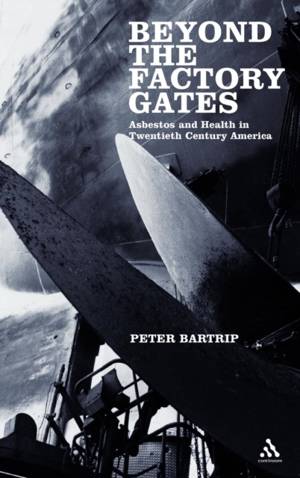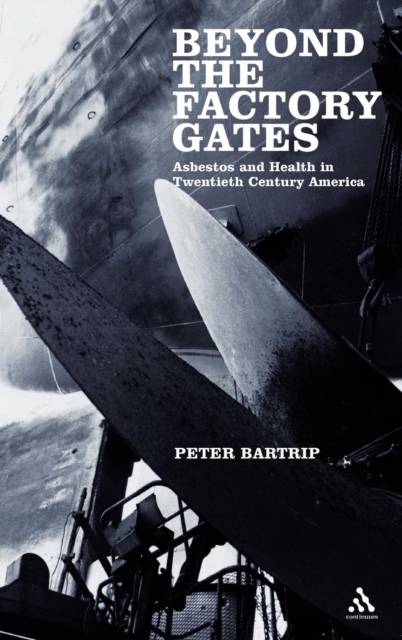
Bedankt voor het vertrouwen het afgelopen jaar! Om jou te bedanken bieden we GRATIS verzending (in België) aan op alles gedurende de hele maand januari.
- Afhalen na 1 uur in een winkel met voorraad
- In januari gratis thuislevering in België
- Ruim aanbod met 7 miljoen producten
Bedankt voor het vertrouwen het afgelopen jaar! Om jou te bedanken bieden we GRATIS verzending (in België) aan op alles gedurende de hele maand januari.
- Afhalen na 1 uur in een winkel met voorraad
- In januari gratis thuislevering in België
- Ruim aanbod met 7 miljoen producten
Zoeken
Beyond the Factory Gates
Asbestos and Health in Twentieth Century America
Peter Bartrip, P W J Bartrip
Hardcover | Engels
€ 415,95
+ 831 punten
Omschrijving
Beyond the Factory Gates examines the issue of asbestos and health in the USA between the early 1900's to the mid-1970s. Areas covered include the emergence of medical concern about the three fatal diseases related to asbestos (asbestosis, lung cancer and mesothelioma); the actions of the US Navy (the main consumer of asbestos-based insulation products); the response of the federal government before and after enactment of the Occupational Safety and Health Act in 1970; and the roles of organized labour and the asbestos industry. The book provides an important insight into occupational health and its regulation in twentieth century America, and is original in several ways. First, there is no satisfactory history of asbestos, health and medicine in the USA - a major gap in the literature. Second, no previous publication has examined the asbestos issue 'beyond the factory gates' in a non-manufacturing context and explored the complex interactions between organised labour, the US Government, business corporations and the US navy. Finally, Beyond the Factory Gates avoids the one-sided, anti-business interpretations that predominate much of the existing literature. It accepts that the history of asbestos is in many ways a human tragedy, but it rejects simplistic, universalised arguments that this has been a tragedy with a cast only villains, dupes and victims.
Specificaties
Betrokkenen
- Auteur(s):
- Uitgeverij:
Inhoud
- Aantal bladzijden:
- 260
- Taal:
- Engels
Eigenschappen
- Productcode (EAN):
- 9780826488367
- Verschijningsdatum:
- 1/07/2006
- Uitvoering:
- Hardcover
- Formaat:
- Genaaid
- Afmetingen:
- 156 mm x 234 mm
- Gewicht:
- 539 g

Alleen bij Standaard Boekhandel
+ 831 punten op je klantenkaart van Standaard Boekhandel
Beoordelingen
We publiceren alleen reviews die voldoen aan de voorwaarden voor reviews. Bekijk onze voorwaarden voor reviews.









